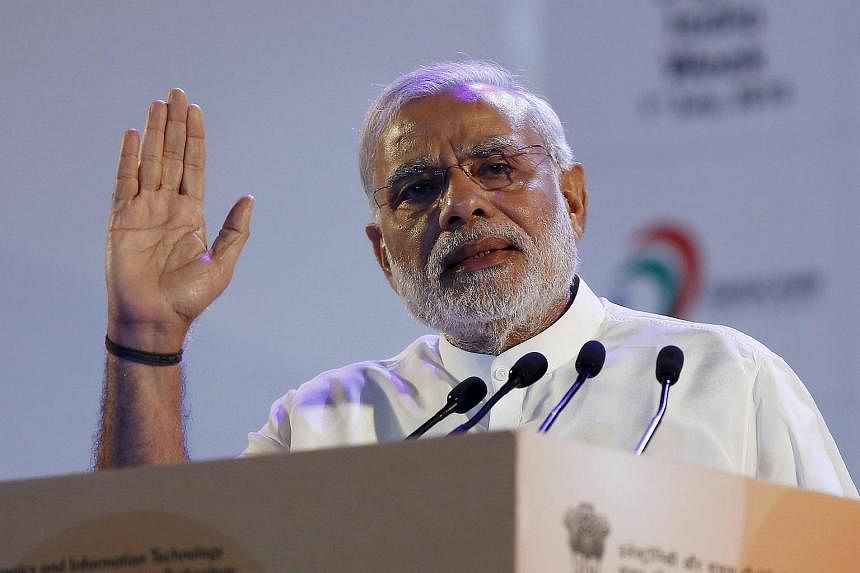Prime Minister Narendra Modi yesterday pledged to bring Internet connectivity to all Indians with the launch of India's digital week, where corporate giants pledged trillions of rupees of investment to upgrade the digital infrastructure in the country.
Only 300 million Indians out of a population of 1.25 billion have access to the Internet. And only 9 per cent of Indians living in rural areas have Internet access.
The Modi government, as part of its digital plans, is looking to lay 700,000km of broadband cable, connecting 250,000 villages and moving online some functions of as many services as possible, including those of education and healthcare.
The digital week will mainly consist of campaigns to popularise Internet usage and create more awareness about the Internet and the government's plans.
"While the number of people connected to the Internet in India is huge, compared with other countries, so is the number of people with no access to the Internet.
"I want to make sure every poor Indian is connected to the Internet," said Mr Modi, an active Twitter and Facebook user, at the launch of the campaign.
The Prime Minister, who has promised "minimum government and maximum governance", also launched a clutch of schemes, including Digital Locker, which allows users to store and share documents with government agencies for services, such as the giving out of marriage licences.
The launch was attended by India's top corporate honchos, who made pledges worth 4.5 trillion rupees (S$95.3 billion) for infrastructure, including 4G services, as well as Internet services.
India's richest man, Mr Mukesh Ambani, who heads conglomerate Reliance Industries, pledged 2.5 trillion rupees, while Mr Sunil Bharti Mittal, founder and chairman of Bharti Enterprises, another conglomerate, pledged US$16 billion (S$21.6 billion) over five years.
Said Mr Ambani: "Digitisation will change the way we live, learn, work and play. It has the potential to change the lives of 1.25 billion people."
Still, the government's plans to roll out Internet services across the country are not without their challenges.
Efforts by past governments to lay out a fibre-optic network have been slow. An editorial on July 1 in the Indian Express newspaper said only 500km of fibre-optic cable was being laid in a month, behind "the stated goal of 30,000km" every month.
"The ideas (for Internet connectivity) have been around for a very long time. Things have not been executed well. The national optical fibre network is significantly behind schedule,'' said Mr Nikhil Pahwa, editor and publisher of Medianama, a website that tracks digital and media businesses.
"The existing broadband is also not reliable in terms of quality. We need more spectrum and increased competition in the telecom space.''
The launch of digital week comes a week after the high-profile launch of the smart cities initiative to create 100 modern and environment-friendly cities.
This left some wondering yesterday if such high-profile launches would be accompanied by efficient execution.
"Another day, another mega event. Now to hope event management transforms into execution,'' tweeted television journalist Rajdeep Sardesai.

